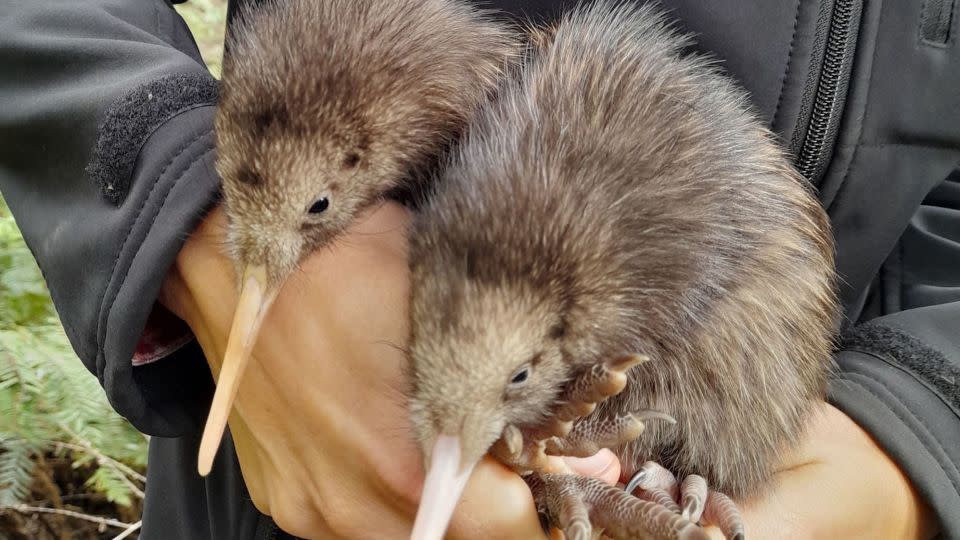Kiwi birds born in New Zealand’s capital for first time in over a century

Conservationists have discovered two kiwi chicks in Wellington, the first wild births recorded for the bird in the New Zealand capital in over 150 years.
The two new chicks come just a year after the Capital Kiwi Project reintroduced the country’s iconic national bird to the city of around 400,000 people.
Their birth in Makara, a suburb just 25 minutes from Wellington’s city center, takes the local total to 65 North Island brown kiwi.
The brown kiwi is one of New Zealand’s most common kiwi species, but according to New Zealand’s Department of Conservation, the birds could be extinct in the wild within two generations without adequate conservation and support.
Another 18 brown kiwi chicks are expected to hatch as part of the Capital Kiwi Project, which hopes to restore a large-scale wild population of kiwi to New Zealand’s capital. The project plans to use transmitters to monitor the two new kiwi chicks as well as any others that hatch.
The flightless birds, which once numbered around 12 million in New Zealand, have seen their population plummet to just 68,000, according to the Save the Kiwi charity. The charity is among approximately 90 Kiwi conservation programs aiming to boost the population.
In 1991, the New Zealand Department of Conservation launched the Kiwi Recovery Plan, which focused on predator control and community engagement.
According to New Zealand’s Department of Conservation, the country’s kiwi population is declining at an average of 2% a year, mostly due to predators like stoats, cats, dogs and ferrets.
95% of wild born kiwi in New Zealand are killed before they reach adulthood, according to Save the Kiwi.
“Really the only issue for an adult kiwi is roaming dogs. Where they get hammered is stoats eating the chicks before they get up to their fighting weight,” Capital Kiwi Project team leader Paul Ward told CNN earlier this year.
Ward expressed optimism about the project, after the release of the 63 kiwi near Wellington last November which marked the first time in about a century that wild kiwi have lived in the area.
For more CNN news and newsletters create an account at CNN.com

